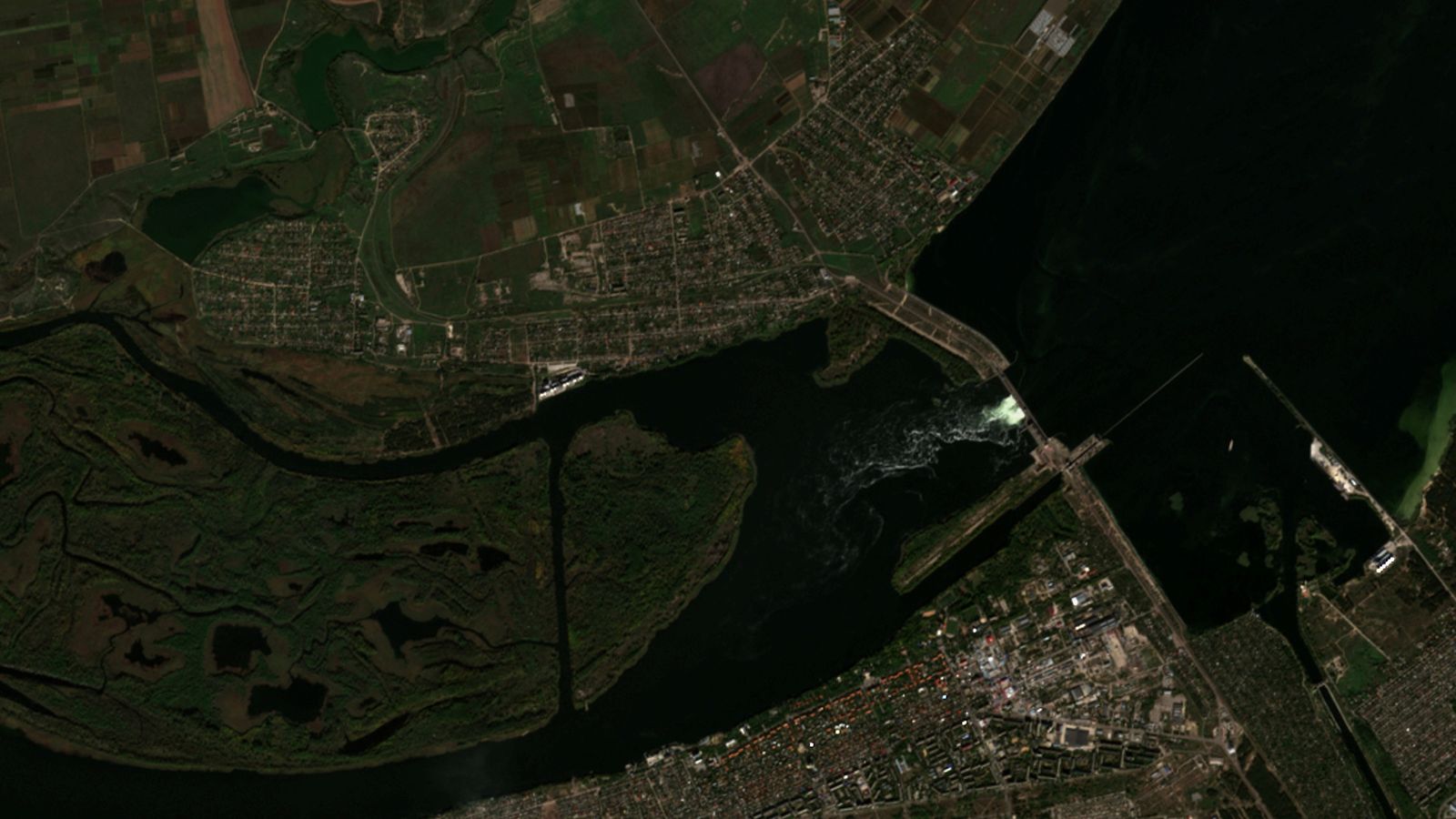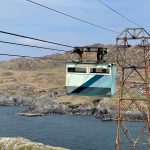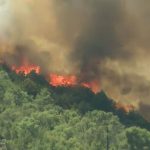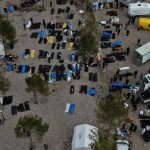A dam in the Russian controlled part of southern Ukraine has been damaged by shelling, leading to flooding in the area already hit by months of conflict.
Both Ukrainian and Russian officials blamed each other for destroying the Kakhovka dam in the Kherson region.
Ukraine’s military said that Russian forces blew up the dam.
“The Kakhovka (dam) was blown up by the Russian occupying forces,” the South command of Ukraine’s Armed Forces said on Tuesday on its Facebook page.
“The scale of the destruction, the speed and volumes of water, and the likely areas of inundation are being clarified.”
The Ukrainian Interior Ministry called for residents of 10 villages on the Dnipro River’s right bank and parts of the city of Kherson to gather “essential documents and pets, turn off appliances and leave”.
Oleksandr Prokudin, the head of the Kherson Regional Military Administration, said in a video posted to Telegram that “the Russian army has committed yet another act of terror”, and warned that water will reach “critical levels” within five hours.
Ukraine war: Kyiv launches ‘offensive actions’ on frontline – as Zelenskyy mocks ‘hysterical’ Russia
Ukraine war: What online evidence reveals about Kyiv’s ‘large-scale offensive’ in Donetsk
Ukraine war: Anti-Russian fighters will hand over two captured soldiers to Kyiv
Russian news agencies said the dam, controlled by Russian forces, had been destroyed by Ukrainian shelling while a Russian-installed official said it was a “terrorist attack”.
Read more:
Has Ukraine launched a large-scale offensive? Here’s what the evidence shows
Russia claims it has thwarted major Ukrainian offensive
Arms contract shows Iran has sold Russia ammunition for Ukraine war, says security source
The dam was built in 1956 on the Dnipro river as part of the Kakhovka hydroelectric power plant and supplies water to the Crimean peninsula and to the Zaporizhzhia nuclear plant, which is also under Russian control.
Russia’s TASS state news agency cited a Moscow-backed official in the Zaporizhzhia region saying there was no “critical danger” yet to the nuclear plant.






















